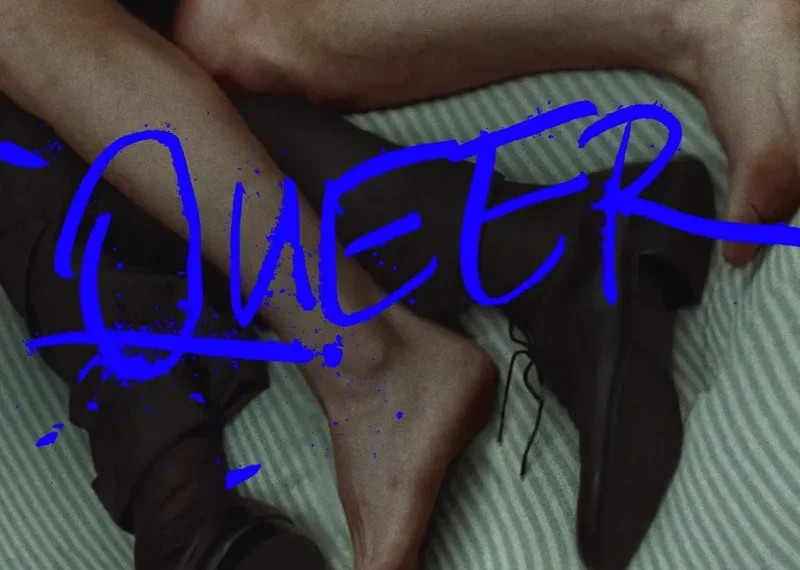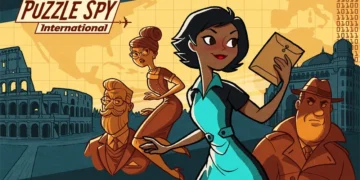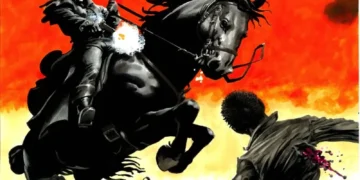Cast: Daniel Craig, Drew Starkey, Jason Schwartzman
Genre: Period Drama, Biography, History, Romance
Director: Luca Guadagnino
In Irish Cinemas: 13th December 2024
Few directors working today possess as keen an ability to explore the fragile and nuanced as Luca Guadagnino. In Queer, the Italian auteur reimagines familiar elements that have come to define his work—desire, longing, and heartache—while crafting a bold, fresh vision that immerses audiences in those emotions in entirely new ways.
Starring Daniel Craig, Queer is one of the most highly anticipated films from Guadagnino, following the buzz surrounding his earlier 2024 release, Challengers. Yet the two films could hardly be more different in tone or scope.
While Challengers portrayed a love triangle between three extraordinary individuals (Zendaya, Josh O’Connor, and Mike Faist) embroiled in a high-stakes power dynamic, Queer shifts its focus inward. It centres on two men—Craig’s William Lee and Drew Starkey’s Eugene Allerton—locked in a complex, intimate struggle with each other, themselves, and society.
Set in 1950s Mexico City, the film follows American expatriate William Lee, who spends his days adrift in a haze of alcohol, drugs, and fleeting sexual encounters. Lee’s aimless existence is disrupted when he meets Eugene Allerton, a younger, enigmatic ex-soldier with a quiet magnetism. Though drawn to one another, their burgeoning relationship is fraught with uncertainty. The queer community in Mexico City may offer a sense of refuge, yet it exists on the margins of society, confined to a few bars where men like Lee and Eugene can find fleeting freedom. Compounding this is the opacity of Eugene’s feelings; while Lee is openly gay and unflinchingly vulnerable, Eugene remains guarded, his intentions and desires shrouded in ambiguity.

Daniel Craig delivers a masterful, profoundly textured performance as Lee, capturing the complexities of a queer man navigating both his past and his present. Despite being worldly and self-assured in some ways, Lee cannot mask his raw emotional vulnerability when faced with his growing feelings for Eugene. Craig leans into the character’s insecurities and imperfections with genuine honesty, laying bare the fears and frustrations of ageing and unrequited love. Opposite him, Starkey brings an understated allure to Eugene, making the younger man’s emotional elusiveness both maddening and intoxicating.
Under Guadagnino’s intimate direction, the chemistry between Craig and Starkey electrifies the screen, drawing viewers into their tumultuous connection. It portrays a romance that feels achingly real—equally exhilarating and excruciating. After all, who hasn’t been caught in the dizzying push and pull of love’s uncertainties?

One of Queer’s standout qualities is Guadagnino’s ability to present love and lust with a level of authenticity rarely seen on screen. The film features numerous moments of male nudity and explicit sex, yet these scenes never feel gratuitous. Instead, they deepen the story’s emotional resonance, capturing the vulnerability and intimacy that defines the characters’ relationship. The result is a visceral and convincing romance that audiences will find themselves swept up in its heady allure.
Perhaps the film’s boldest stroke is its surrealist undercurrent, which acts as a unifying thread throughout the narrative. Adapted from William S. Burroughs’ 1985 novella of the same name, Queer incorporates the mysticism and hallucinatory qualities that permeate the author’s work. While Guadagnino has flirted with moments of surreality in his past films, he fully embraces it, using abstract imagery to externalise the characters’ inner turmoil.

In some sequences, Queer transforms into a moving art installation, offering visual metaphors for emotions that remain unspoken. These dreamlike interludes may leave some viewers puzzled as Guadagnino’s foray into more abstract storytelling departs from his typically accessible narratives. Yet this ambiguity feels deliberate, mirroring the ineffable nature of love itself—its joys, pains, and lingering aftereffects.
The reserved screenplay by Justin Kuritzkes (Challengers) pairs seamlessly with the film’s reflective performances, leaving much of the story’s meaning to be inferred. For some, this restraint might prove frustrating. But for others, it will resonate as an honest reflection of how love, at its core, defies tidy explanation.

By the time the credits roll, Queer leaves an indelible impression—not just as a cinematic exploration of love and longing but as a deeply felt meditation on human connection. Even as audiences grapple with its abstract elements, the film’s emotional core lingers, haunting and poignant.

With Queer, Luca Guadagnino solidifies his reputation as one of contemporary cinema’s foremost chroniclers of love in all its messy, beautiful complexity. This film challenges, captivates, and ultimately affirms the power of storytelling to capture the ineffable.
Overall: 6/10


















